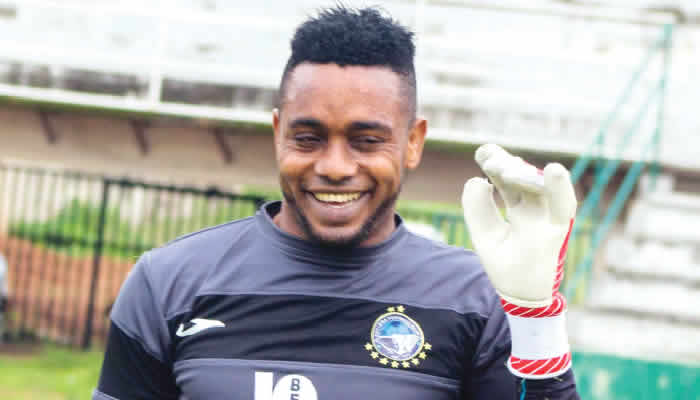The lament of Ojo Olorunleke, a seasoned goalkeeper who has plied his trade across various leagues, echoes a familiar refrain in the world of football: the undue burden of blame placed upon the shoulders of goalkeepers. His succinct yet poignant remark, “Na we dey suffer am pass pastor,” encapsulates the often-unfair scrutiny faced by those who guard the net. This sentiment, sparked by a social media discussion surrounding Manchester United’s André Onana and a deflected goal in a crucial match, highlights a systemic issue within the sport, where goalkeepers are frequently made scapegoats for defensive lapses, regardless of the complexities of the situation.
Olorunleke’s perspective is not merely an isolated grievance but rather a reflection of a broader, deeply ingrained tendency to pinpoint the last line of defense as the primary culprit when goals are conceded. This phenomenon transcends individual players and leagues, affecting goalkeepers at all levels, from grassroots football to the grand stages of international competitions. While every position on the field carries its own unique pressures and responsibilities, the goalkeeper’s role is particularly exposed, their errors often resulting in immediate and visible consequences. This vulnerability, coupled with the high-stakes nature of the position, makes them easy targets for criticism, both from passionate fans and critical analysts.
The Nigerian goalkeeper’s career trajectory, marked by both triumphs and setbacks, further underscores the complexities of this issue. Having reached the pinnacle of domestic success with Enyimba, clinching a record ninth league title, Olorunleke experienced the accolades that come with top-level performance. However, his subsequent move to Al Merrikh SC in Sudan proved to be a challenging chapter, culminating in a premature termination of his contract. The circumstances surrounding his departure, attributed to a confluence of factors including family concerns, disagreements with coaching staff, and frustration over national team exclusion, paint a picture of a player grappling with professional and personal pressures.
These experiences, both positive and negative, have undoubtedly shaped Olorunleke’s understanding of the pressures faced by goalkeepers. His complaint about the quality of training and the relationship with the coaching staff at Al Merrikh, coupled with his disappointment over being overlooked for national team selection, highlights the psychological toll that such circumstances can take on a player. This frustration, compounded by the inherent scrutiny that comes with the goalkeeper position, underscores the need for a more nuanced and empathetic understanding of the challenges faced by those who stand between the posts.
The advent of social media has amplified this phenomenon, creating an environment where every mistake is magnified and dissected under the relentless gaze of online scrutiny. The immediacy and reach of these platforms provide a fertile ground for instant reactions, often fueled by emotion rather than reasoned analysis. This can create a toxic atmosphere where goalkeepers are subjected to a barrage of criticism, often disproportionate to their actual culpability in a given situation. The pressure to perform flawlessly under such intense scrutiny can be immense, impacting not only a player’s confidence but also their overall well-being.
In essence, Olorunleke’s observation serves as a timely reminder of the often-unfair treatment meted out to goalkeepers. While accountability is an integral part of professional sports, the tendency to scapegoat goalkeepers overlooks the multifaceted nature of defensive errors and the collective responsibility of the team. A more balanced perspective, one that acknowledges the complexities of the game and the pressures faced by those in the most exposed position, is crucial for fostering a more supportive and understanding environment for goalkeepers at all levels. This requires a shift in the narrative, moving away from simplistic blame assignment and towards a more nuanced analysis of team performance, recognizing that football is, after all, a team sport, where success and failure are shared collectively.














